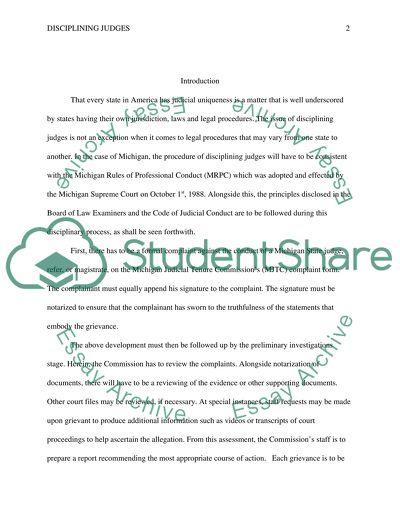Disciplining judges Essay Example | Topics and Well Written Essays - 750 words. Retrieved from https://studentshare.org/law/1466406-disciplining-judges
Disciplining Judges Essay Example | Topics and Well Written Essays - 750 Words. https://studentshare.org/law/1466406-disciplining-judges.


